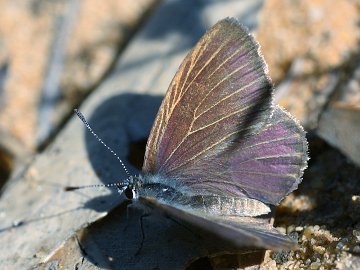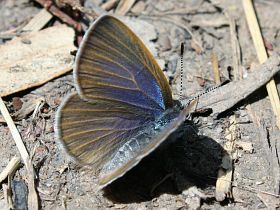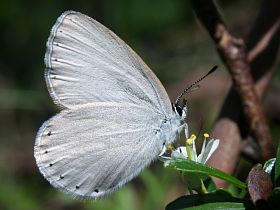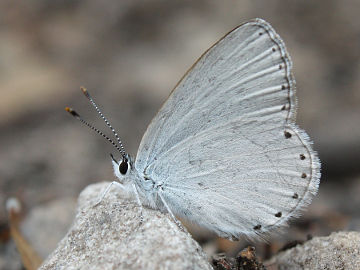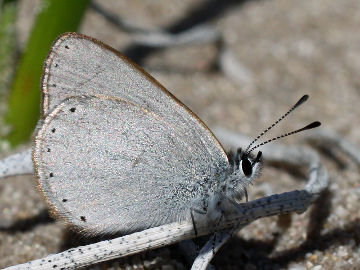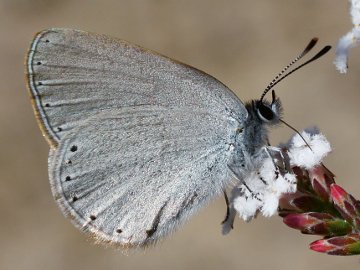Rayed Blue (Candalides heathi)
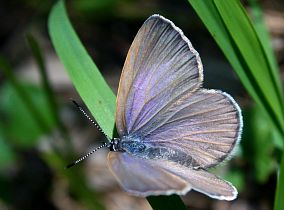
Appearance: Upperside brown with iridescent blue suffusion and golden veins. Females have the iridescent blue colour brighter but less extended than males. Underside light grey with a characteristic row of black spots along the outer edge of the wings.
Wingspan: 2.7–3.0 cm
Season: 1 or 2 generations in spring and summer.
Range: Patchy distribution throughout temperate and semi-arid regions of Australia; not in the far north and TAS.
Habitat: Variety of habitats, including heathland and woodland.
Photo: Female, Ingleburn, NSW, 20 / 02 / 2010.
Notes
The Rayed Blue can be found all across Australia throughout temperate and semi-arid regions. It is missing in the arid regions, the far north, and Tasmania. Despite its wide range, the Rayed Blue can only be found very locally in suitable habitats where the larval food plants grow. In warm and sunny weather the butterflies continuously flutter close to the ground, whereas in cooler conditions they often rest in the vegetation with their wings closed.
Through its unique colour and pattern on the upperside of the wings the Rayed Blue can be easily distinguished from other species of butterfly. The underside is very similar to that of the Yellow-spotted Blue (Candalides xanthospilos) which has a few additional spots scattered across the hind wing underside.
Additional Photos
